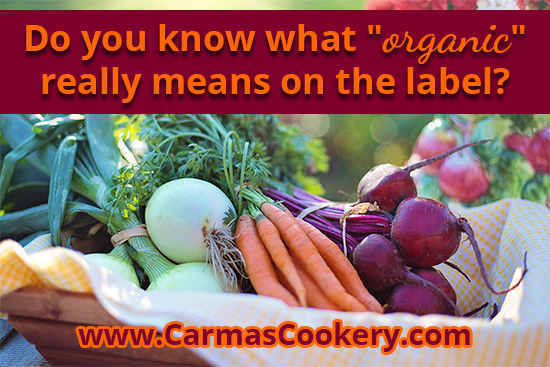US Organic Food Producers Ought to Better Educate US Consumers
I have a friend who is really strict with her diet due to some health problems she has. This weekend, we had a discussion on what “organic” means on U.S. food labels, how misleading that label can me, and about organic foods in general. Some insightful research published through ReportLinker and developed by the HPS Food Group indicates that the usual U.S. buyer of organic food products, whether frequently or infrequently buying, doesn’t fully understand what protocols those products go through for USDA certification or what the word “organic” really indicates.

What “Organic” Really Indicates
For a food product to carry the description “organic” on its labeling, it has to have been made in accordance with strict protocols which were first put in place by the USDA in 2002. “Organic” does not necessarily mean that a product is 100% organic; it does, however, indicate that it’s a minimum of 95% organic. “Organic” is not the same thing as the (labeling-wise) undefined word “natural” used in food labeling. (“Natural” simply tends to mean predominantly free of artificial ingredients.)
A farm or food manufacturer must be certified by an agent from the USDA’s NOP (National Organic Program) to be permitted to label its product “organic.” For that business to continue putting “organic” on its labels, it must be inspected and recertified by NOP each year. Imported foods to the US labeled “organic” have to meet the same standards; if it’s found that an imported food doesn’t meet them, then it’s producer will be told to remove the “organic” label or face prosecution from the USDA’s attorneys.
A Growing Demand for Organic Foods
 From 2002 through 2016, the number of certified organic foods producers in the US grew by 237%. The total amount of land now devoted to growing crops organically in the US has reached more than 4.36 million acres (6800 square miles), an amount of land more than double that comprising the state of Delaware.
From 2002 through 2016, the number of certified organic foods producers in the US grew by 237%. The total amount of land now devoted to growing crops organically in the US has reached more than 4.36 million acres (6800 square miles), an amount of land more than double that comprising the state of Delaware.
Cultivated lands certified as devoted to organic food production are forbidden from having any synthetic chemical pesticides used or GMO crops grown on them. However, naturally-occurring pesticides and pest control methods are used. What’s more, crops made through the process of mutagenesis are also grown on these lands.
From 2005 through 2015, the sale of organic food products in the US grew by more than 200%. This rate of growth far outpaces that of total food product sales (31%) in spite of organic foods being significantly more expensive, which shows how important organic eating has become to a great many American households. In fact, if the organic food industry were, itself, a single corporation, it would now be featured on the US Fortune 100 list of companies.
Ultimately, food consumers in the US believe that food producers, rather than the government, the media, or consumers themselves, ought to shoulder the responsibility of making it clear and easy to understand exactly what “organic” labeling means. With Americans obviously hungry for more organic foods, it would be in the best interests of organic food producers to make a stronger push to educate US food consumers.
In the meantime, you can educate yourself with the resources listed below. Or you can try your hand at growing your own organic vegetables.

Take Charge of Your Health!
Changing your eating habits can be tough. But it doesn’t have to be if you take a little time to think it out and create a plan.
This Healthy Eating Worksheet will walk you through the process of creating a healthy eating plan. All you need to do is print it out, set aside some time to complete it, and then fill it out. Then you can create your plan, knowing that you have addressed potential obstacles and came up with some creative ways to handle them.


